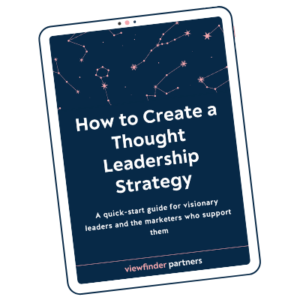What has your attention right now? What are you spending your time on, working on, thinking about, exploring? (No, I really want to know. I love this stuff.)
I love talking to people about their work. I also love hearing about all the things on their mind that have nothing to do with work.
- The engineer who is developing a new way to screen for cervical cancer.
- The CEO who can’t wait to talk about the new action movie they’ve already seen three times in theaters.
- The designer who has reverse-engineered granola bar packaging to make it more recyclable.
- The finance leader who knits hats for NICU babies while she commutes.
- The manager whose focus is creating a supportive community in the office.
- The management consultant who took his whole family skydiving this summer.
- The economist who can’t wait to tell me something fascinating he read about the money habits of Gen Z.
- The people who are spending part of their work week volunteering in high schools and hospitals and soup kitchens.
I spend most of my working time talking to interesting people and digging deep on the things they’re interested in. I’ve learned over and over that the most interesting people are interested in a lot of subjects.
And here’s what I’ve observed time and again. The most interesting people have something that pushes them deeper into their work and something that takes them completely outside of their work.
My advice for anyone who wants to stay interesting and interested: Have one thing that takes you farther in, and one thing that pushes you out.
Dig Deeper into Your Work
Let’s start with what you’re working on. The way to make your work truly interesting is to pause and reflect on what you’re doing. What are you learning? What’s surprising? What do you want to explore further? What are you learning about yourself, your relationships, your evolution as a professional, or the future of your field?
I often recommend starting a thought leadership practice in order to regularly reflect on your work. Reflection makes you better at your work, and (bonus) helps you talk about what you’re learning to other people.
To go deeper into your work, you could try one of these strategies:
- Reflect every week at a set time. Every Friday at 2, close your email and spend some time looking back on your week – the milestones, conversations, questions, and lessons you’ve been stewing in. Write down what you’ve learned. It doesn’t have to be polished and ready to share – this is just for you.
- Dive deep into one topic you want to learn more about. Let’s say you work in supply chain management. You know a lot about how supply chains can become more efficient, but you want to learn more about sustainability and circular supply chains. Follow your nose and make time to read articles and books, listen to podcasts, and talk to other people in your field to learn more.
- Package your reflections to share with others. Teaching is one of the best ways to cement your own expertise. Challenge yourself to package your reflections into something you can share with others. Apply to speak at a conference. Volunteer to present at your next department meeting. Write a LinkedIn post or an article for an industry magazine. Brainstorm your book title. The simple act of spinning your reflections out to other people can help you examine your own reflections more closely.
Take Yourself Out of Your Work
Here’s where I’ve found that the opposite is also true. If you only think about your work, your perspective becomes too myopic and you become, sorry, a little boring. Picking your head up and looking outside of your area of expertise is guaranteed to make you a more interesting person.
Exploring other interests also gives you material for metaphors. It helps you draw new connections between the things you learn about the world and the things you’re learning about your work.
I personally love to read fiction. I’m reading a novel right now about a nun in the 1100s. Reading about her (fictionalized) daily life is fascinating – thinking about what people ate, how they slept, and what interpersonal dramas looked pretty similar to our modern relationship quirks.
I also volunteer in my local community, doing simple work that has nothing to do with my career. I can tell you that I feel the most open, generous, expansive, and ready to explore after I’ve spent a few hours outside of my comfort zone, talking to people whose lives are a lot harder and different than mine.
Taking yourself out of your work is just as important as throwing yourself into your work.
Make Your List: In and Out
So, I want to know!
What has your attention right now? What are you spending your time on, working on, thinking about, exploring?
Make a list. In the upcoming season:
- How could you go deeper into your work, exploring and learning?
- What are ways you could take yourself out of your work, widening your perspective?
Based on the many people I’ve worked with over the years, I guarantee that this combination of going deeper in + farther out will make you more interested and interesting.







